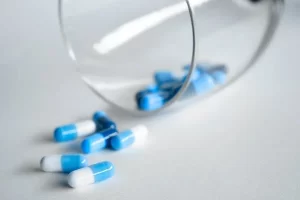Addiction is a major problem in today’s society, with numerous health and social implications. Due to its complexity, it requires the involvement of diverse professionals, such as psychologists, counselors, social workers, and medical doctors. The doctors’ role, however, is especially important in the treatment of addiction because their primary job is to diagnose and prescribe treatments based on medical evidence.
Unfortunately, there are significant gaps in the connection between addiction medical doctors (also known as addictionists) and mainstream doctors. This means that cases of addiction are often not properly diagnosed and managed by medical doctors. An important part of addiction treatment is establishing a connection between medical doctors and addiction medical doctors. This connection is vital in helping patients access suitable treatments for their condition.

One way to bridge the gap between medical doctors and addiction medical doctors is through the development of an interdisciplinary approach. This interdisciplinary approach involves doctors, counselors, social workers, and addiction specialists working together to create a comprehensive and integrated treatment plan for patients with addiction. This interdisciplinary approach can help to ensure that patients receive more comprehensive, effective, and personalized care.
In addition to an interdisciplinary approach, the development of a shared understanding among medical doctors and addiction specialists is essential in establishing a connection between the two. This understanding begins by recognizing that addiction is a complex, multi-faceted disorder that involves multiple biological, psychological, and social factors. By understanding the complexity of addiction, medical doctors and addiction specialists can develop effective approaches to treatment.
A key component of connecting medical doctors and addiction specialists is developing a system of communication between the two. This includes creating opportunity for frequent contact and communication via in-person meetings, phone calls and/or emails. This communication should focus on exchanging information about diagnosis, treatment methods, and patient progress. Such communication will help to ensure that there is an open line of communication between medical doctors and addiction specialists in order to provide more comprehensive and better care.
Connecting medical doctors and addiction specialists is also important for the implementation of comprehensive treatment plans for addiction. When medical doctors and addiction specialists have an understanding of how to develop and implement comprehensive treatment plans, they can provide more effective patient care.
In addition, connecting medical doctors and addiction specialists can help to increase access to addiction treatment. When medical doctors and addiction specialists are connected, they can refer patients to suitable treatment programs and organizations to receive more effective and comprehensive care. Furthermore, when medical doctors and addiction specialists have a shared understanding of addiction, they can work together to develop and implement better treatment strategies and protocols.
Lastly, connecting medical doctors and addiction specialists can help to address the opioid crisis. By establishing better communication between medical doctors and addiction specialists, medical doctors can ensure that their patients are receiving appropriate treatment for opioid addiction and referral to comprehensive opioid treatment programs.
In conclusion, connecting medical doctors and addiction specialists is a critical component in providing comprehensive and effective care for individuals with addiction. Through an interdisciplinary approach, as well as a shared understanding, communication, and collaboration, medical doctors and addiction specialists can ensure that patients are receiving more comprehensive and better-quality care. Additionally, by connecting medical doctors and addiction specialists, better access to addiction treatment can be achieved, and effective strategies can be developed to address the opioid crisis.
